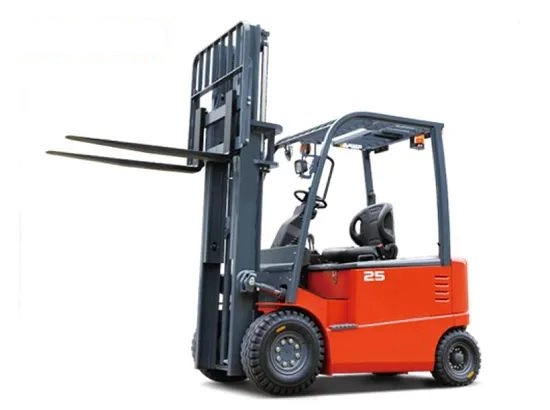With the development of new energy technologies and the improvement of environmental protection requirements, the market share of electric forklifts is increasing. They are gradually replacing gasoline forklifts as the mainstream development direction, but complete replacement will still take time. The specific analysis is as follows:

The advantages of electric forklifts make them potential replacements:
- Superior environmental performance: Electric forklifts are powered by batteries, with no exhaust emissions during operation, no smoke or odor, and low noise. They are suitable for working in indoor warehouses, workshops and other places with high environmental requirements. In contrast, the exhaust gases such as hydrocarbons emitted by gasoline forklifts will pollute the indoor environment, and their noise is relatively loud. Under the background of increasingly strict environmental protection policies, their application scenarios are gradually restricted.
- Low use and maintenance costs: Although the purchase cost of electric forklifts is usually higher than that of gasoline forklifts, in the long run, their energy cost is lower. The price of electricity is generally lower than that of gasoline. Moreover, electric forklifts do not need to regularly replace parts such as engine oil and filters, and there is no complex engine maintenance work, so the maintenance cost is also lower. According to statistics, the annual use and maintenance cost of electric forklifts can be saved by about 33,000 yuan compared with internal combustion forklifts.
- Convenient operation and control: The control system of electric forklifts is usually more advanced, with simple operation and high intelligence, making it easy for drivers to get started. In addition, the steering and braking operations of electric forklifts are more lightweight and flexible, enabling more efficient work in narrow spaces, and they are suitable for working conditions that require frequent starting, stopping and steering.
The characteristics of gasoline forklifts allow them to still have room for survival:
- Advantages in power performance: Gasoline forklifts have smoother power output and better high-speed performance, which gives them an advantage in some scenarios where high handling speed is required. In addition, their engine technology is mature and their power is strong. Although their heavy-load capacity is generally not as good as that of diesel forklifts, compared with electric forklifts, they can still be applied to some light-load occasions (below 3 tons) that have certain power requirements.
- Stronger endurance capacity: Gasoline forklifts are convenient to refuel and have large fuel tank capacities, enabling them to work continuously for several hours without interruption, which makes them suitable for long-time and high-intensity work tasks. Electric forklifts are limited by battery capacity and charging time. Although the development of lithium battery technology has improved their endurance, gasoline forklifts have more advantages in some scenarios that require continuous operation and cannot be charged in time.
- Adaptability to complex environments: Gasoline forklifts have stronger adaptability to the working environment, with good low-temperature starting performance, and can work normally in a wider temperature range. At the same time, their engine structure is relatively wear-resistant. In some outdoor environments with poor road conditions and heavy dust or remote areas, gasoline forklifts have higher reliability, while electric forklifts may have their performance affected due to moisture in electrical components, dust entry and other issues.


